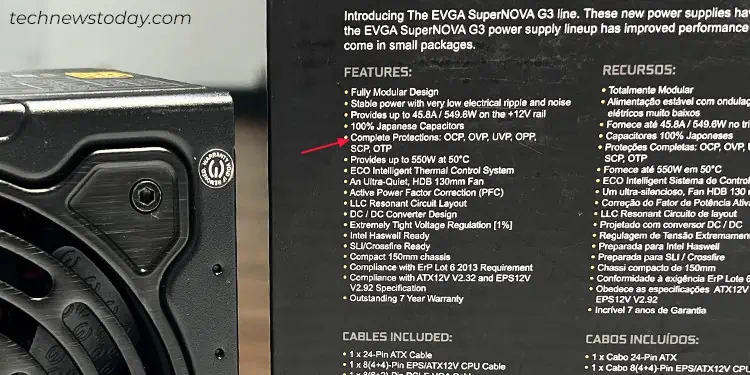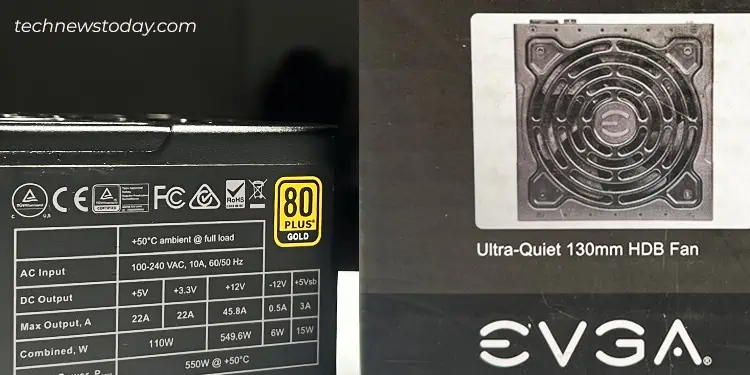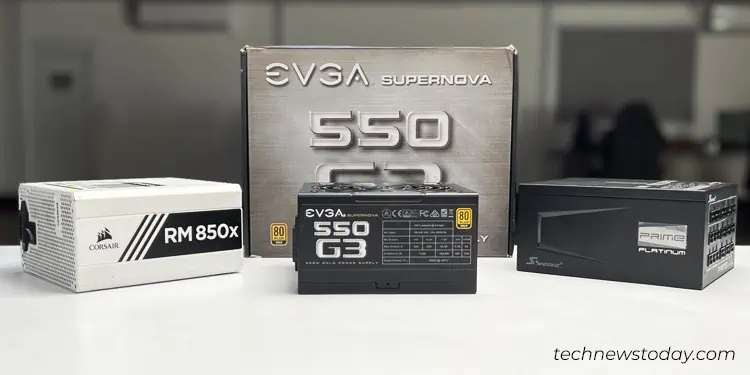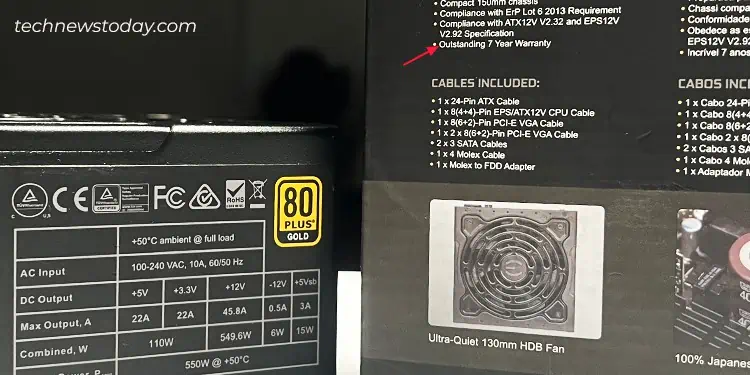Choosing a right power supply unit is just as important as any other hardware component for your build. If you are not using the right one, things may not turn out well—it doesn’t matter how top-notch other components are.
During my builds, I often prioritizePSU wattageover anything else. As a rule of thumb, I always keep a headroom of 25% to 30%, that not only ensures stable performance but also facilitates future upgrades and overclocking.
To know which power supply to choose, first find out the power requirement of your system. Then, figure out the PSU wattage. Next, choose the correct size PSU that fits into the PSU compartment. The rest of the things, like modularity and efficiency ratings, are completely your preference.
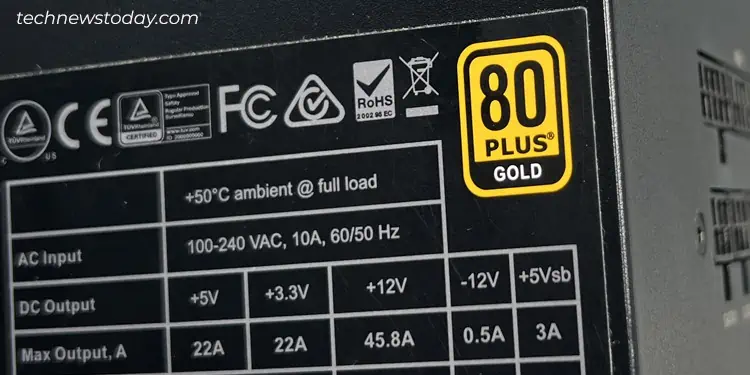
Here’s a step-by-step breakdown to help you choose the right power supply unit for your build.
Calculate Your System’s Power Needs
PSU wattage is always the first thing to consider whenever you are choosing a power supply. If I am not wrong, I think you have already planned what components you will be using with your setup. In fact, you might have already purchased a few of them.
Now what you need to do is, go to online power supply calculator sites likePCPartPickerand figure out the power requirements of your system.
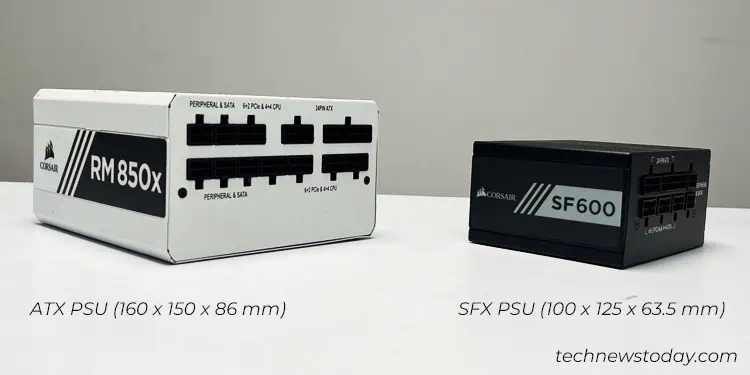
Personally, when I calculated the power needs for my last build, it came out to be 450 watts. But wait! Does this mean I get a 450-watt PSU, then? No, it doesn’t.
Leave Sufficient Wattage Headroom
As discussed above, while my power requirement was only 450 watts, I opted fora 650W PSUinstead. It was enough for me, even if I wanted to overclock or add components in the future.
Do note that you should always keep adequate wattage headroom while you are getting a PSU. Normally, it is ideal to keep a headroom of about 30%.
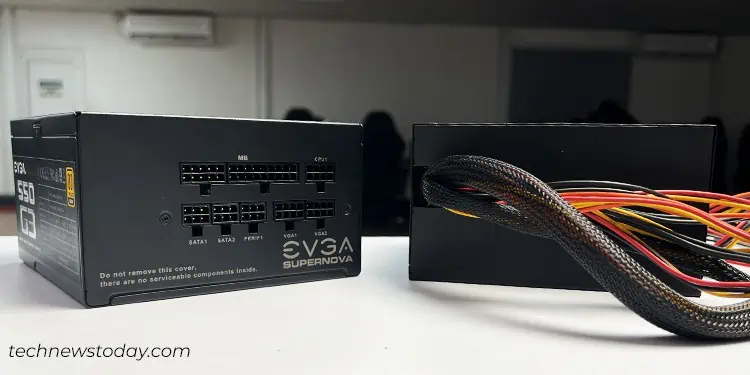
Understand the 80 PLUS Efficiency Ratings
80 PLUS is a widely used term when it comes to theefficiency rating of a PSU. You might have seen labels on a PSU like 80 PLUS Silver,80 PLUS Gold or Platinum. The higher the rating, the more efficient the power supply.
Let me quickly clarify this with the help of an example. For instance, below is my 80 PLUS Gold certifiedEVGA SuperNova 550 G3 PSU.
The rating indicates that this PSU will yield 87% efficiency while running at 100% load. To be more precise, the PSU will take 575 watts from the wall outlet to supply 550 watts to your PC. The rest of the energy would bedissipated as heat.
